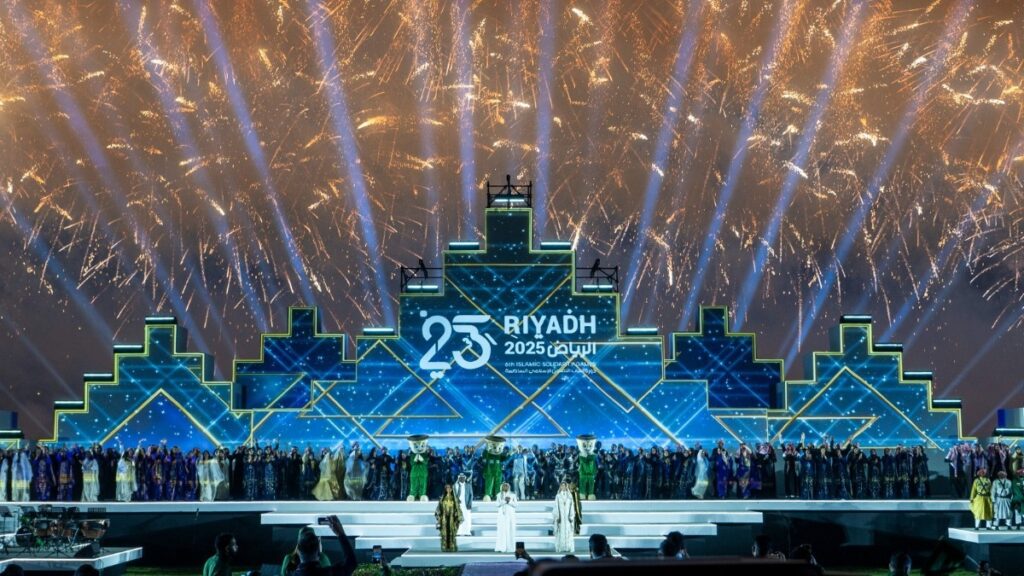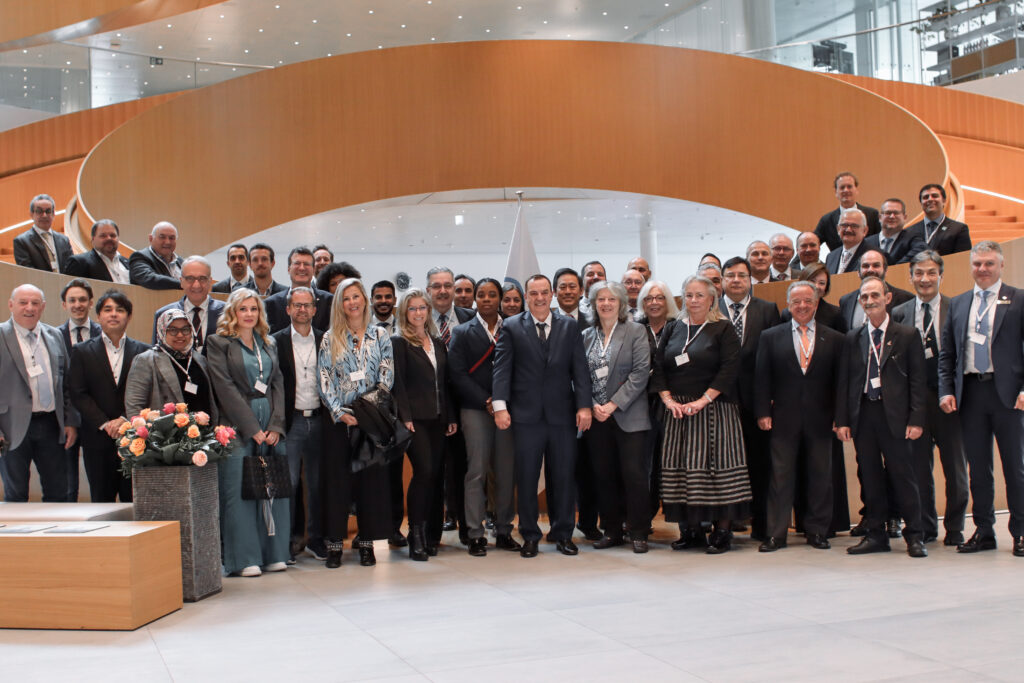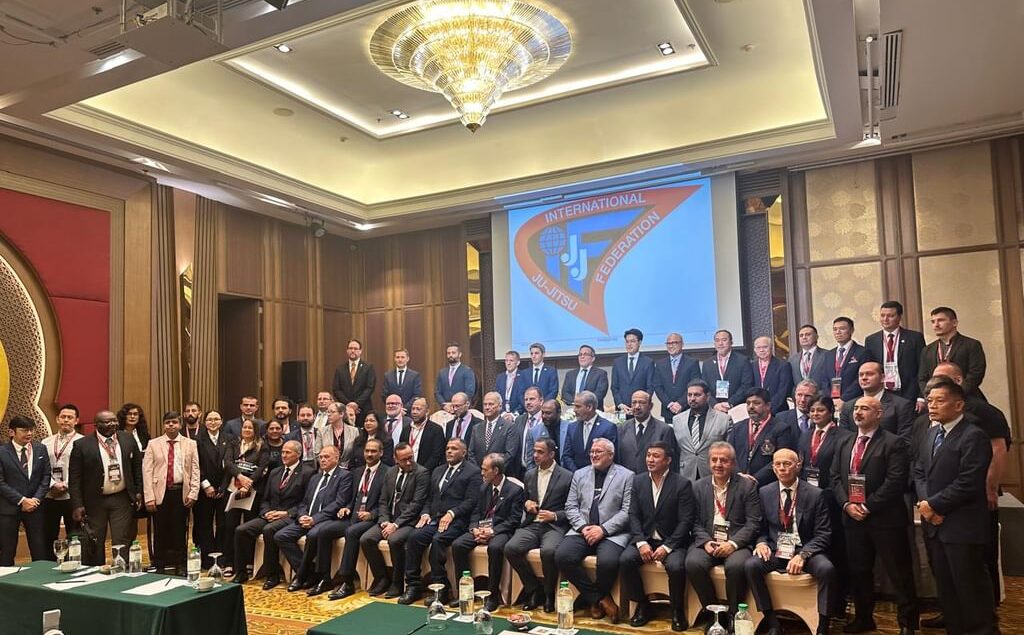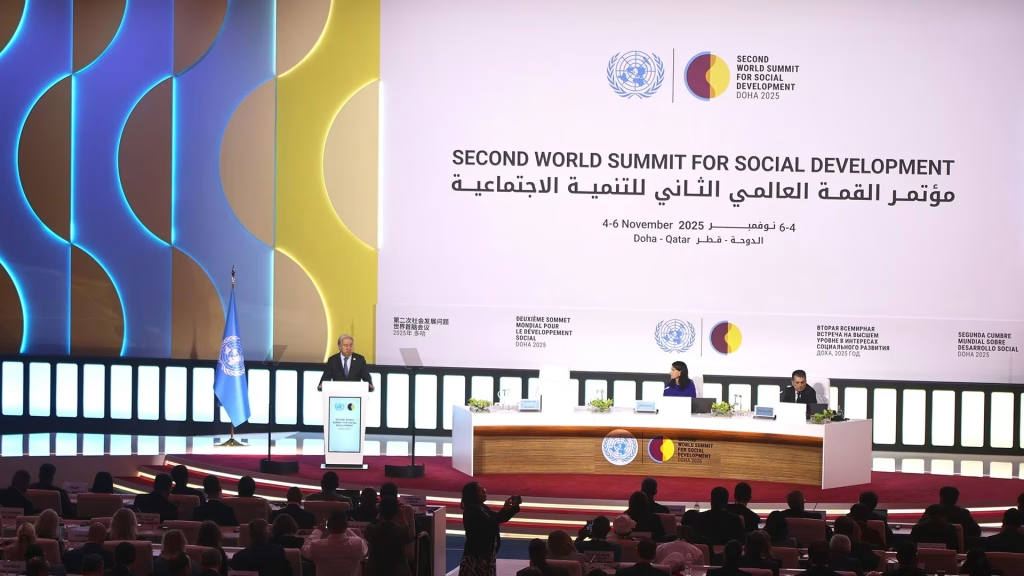
… this was the appeal I made to the political leaders across the world in my opening speech of the Olympic Winter Games Beijing 2022. In my closing speech I expressed the hope that these leaders would be inspired by the “example of solidarity and peace” having been set by the athletes. Just four days later all our hopes for Ukraine were shattered. The horrifying images and reports of the invasion of Ukraine by the Russian army shocked the world. Every day we are more devastated by seeing so much human suffering, anxiety, desperation and destruction. In the meantime, millions of Ukrainians, most of them women and children had to flee from the brutal acts of war to other countries. Our hearts, our feelings, our emotions go out to all these innocent victims. The world community reacted in an unprecedented way to what is widely considered a turning point in world history. The UN General Assembly deplored the aggression by the Russian Federation in the strongest terms with a most exceptional majority. Only three other countries voted with Russia and Belarus against this resolution. Acts of solidarity by millions of people and sanctions by governments across the world followed.
The Olympic Movement immediately strongly condemned the breach of the Olympic Truce by the Russian government, urged the relocation of all sports events planned in Russia or Belarus, and called for no national symbols of any kind of these countries being displayed at any sports events. In doing so we were demonstrating our solidarity with the Ukrainian people. We were sharing the emotions with the people across the globe who, like us, are calling for peace. At the same time we had to share the hard reality with all of them.
On the one hand we have a heavy heart. On the other hand we have to keep a cool head to preserve our Olympic values that have withstood the test of time. The invasion has changed the world. The invasion has not changed our values. The invasion has strengthened our commitment to our values of peace, solidarity and non-discrimination in sport for whatever reason. What has changed, however, are the ways to protect and promote them. This situation forces us – and gives us the opportunity – to clearly define the principles and values that constitute the Olympic Movement and guide us. The political consequences of this war and the respective political sanctions confront us with the extremely difficult dilemma of not being able to fully apply these principles at all times.
Our guiding principle is peace. We were entrusted with this mission by our founder Pierre de Coubertin. When he revived the Olympic Games and created the IOC in 1894, with the full support of the International Peace Movement at the time, he said: “Should the institution of the Olympic Games prosper, it can become a potent factor in securing universal peace.”
This means that sport, and in particular the Olympic Games, can be a powerful symbol of peace and understanding. They can be an inspiration for how peaceful the world could be if we all respect the same rules and each other. Everybody in the Olympic community wishes we could be more than a symbol and an inspiration. But we have had to learn once again the hard lessons that sport cannot create peace, and that decisions on war and peace are the exclusive remit of politics. To be at least a powerful symbol, to be an inspiring demonstration of a – maybe utopian – peaceful world, to be a credible polar opposite of war, Olympic sport needs the participation of all the athletes who accept the rules, even and in particular if their countries in the “real” world are in confrontation or at war. A competition between athletes from only like-minded nations is not a credible symbol of peace, it is just another sports event. This is our role: to provide a counter-example to war and division – not to accept, follow and deepen divisions among people. We must be united in the Olympic Movement; we must stand in solidarity together to achieve our unifying mission in all circumstances.
These values, these principles and this mission have guided us in the past and will guide us in the future, acknowledging the historic fundamental changes of the world brought about by the Russian invasion and their unprecedented political consequences.
This means that we will continue to expose the people and organisations responsible for this war in breach of the Olympic Truce. Therefore, sports competitions or events should not take place in the territory of the Russian Federation or the Republic of Belarus. No national or state symbols of any kind of these countries should be displayed at any event organised by the Olympic Movement. We will not fall into the trap of the cheap argument that this would be a politicisation of sport, going against the Olympic Charter which requires political neutrality. Whoever so blatantly violates the Olympic Truce with political and even military means cannot denounce the consequences as being politically motivated.
This clear exposure of the Russian government and its members as being responsible also recognises that this war has not been started by the Russian people, Russian athletes or Russian sports organisations. But we are facing an insoluble dilemma in this respect because we have at the same time the great responsibility to ensure the integrity, fairness and safety of our competitions. Under these unique circumstances we cannot fully uphold this responsibility, we cannot ensure the integrity of the competitions. With the recommendation of the IOC Executive Board, we have brought clarity to our stakeholders, avoided divisions and helped them to maintain unity. Without this, we would have to face the situation where Russian or Belarusian athletes would be competing for titles, while Ukrainian athletes could not, because of the war in their country. Without this, we would have had to experience the politicisation of sports competitions by athletes or teams, some of them being encouraged by third parties. We also had to consider the safety risks for Russian and Belarusian athletes taking part in international competitions, because of deep anti-Russian and anti-Belarusian feelings following the invasion.
For all these reasons we urge every sports organisation in the world to protect the integrity, fairness and safety of their competitions by not allowing Russian and Belarusian athletes to take part or in special circumstances to at least prohibit any identification of their nationality. This protective approach is also shared by International Sports Federations chaired by Russian nationals. In this context, we will continue to monitor the attitude of Russian or Belarusian athletes and their sports organisations concerning their commitment to peace as enshrined in the Olympic Charter. In doing so we will have to take the situation within Russia into account where, by law, an engagement for peace has been put under the sanction of imprisonment for up to
15 years.
It goes without saying that we will continue our close consultations with all the stakeholders of the Olympic Movement. I would very much like to encourage you also to take the initiative to contact the IOC with regard to any question or comment you may have.
At the same time, we will strengthen our solidarity efforts with the Ukrainian Olympic Community. Many of them are living in Ukraine under unbearable conditions, many of them have had to flee. We are overwhelmed by the show of solidarity from the entire Olympic Movement. To make this assistance as efficient as possible we have not only established a solidarity fund, we have also called on our IOC Member Sergii Bubka in his capacity as President of the NOC of Ukraine, to lead our efforts. His working group has already provided assistance to many of our Ukrainian Olympic friends through the 25 regional offices of the NOC and other NOC institutions. They are in contact with a number of NOCs whose countries have already accepted more than two million refugees, and are offering their help in the Olympic spirit at its best. In this same spirit, we do not forget the other Olympic communities affected by war, warlike situations or acts of aggression. We continue to assist them, like in Ukraine, through their respective NOC.
The war in Ukraine is so unique because of the global response to it and the far-reaching consequences for the world, making it a turning point in world history. This also creates unique challenges for our Olympic Movement. We sincerely hope that these challenges can be overcome as soon as possible and peace can be restored. It does not make us forget the victims of the other too many wars in our fragile world. In solidarity with all of them please join me by appealing, by pleading, by calling on all the political leaders around the globe:
“Give peace a chance”
Lausanne, 11 March 2022,
Thomas Bach
Read More:https://olympics.com/ioc/news/-give-peace-a-chance




